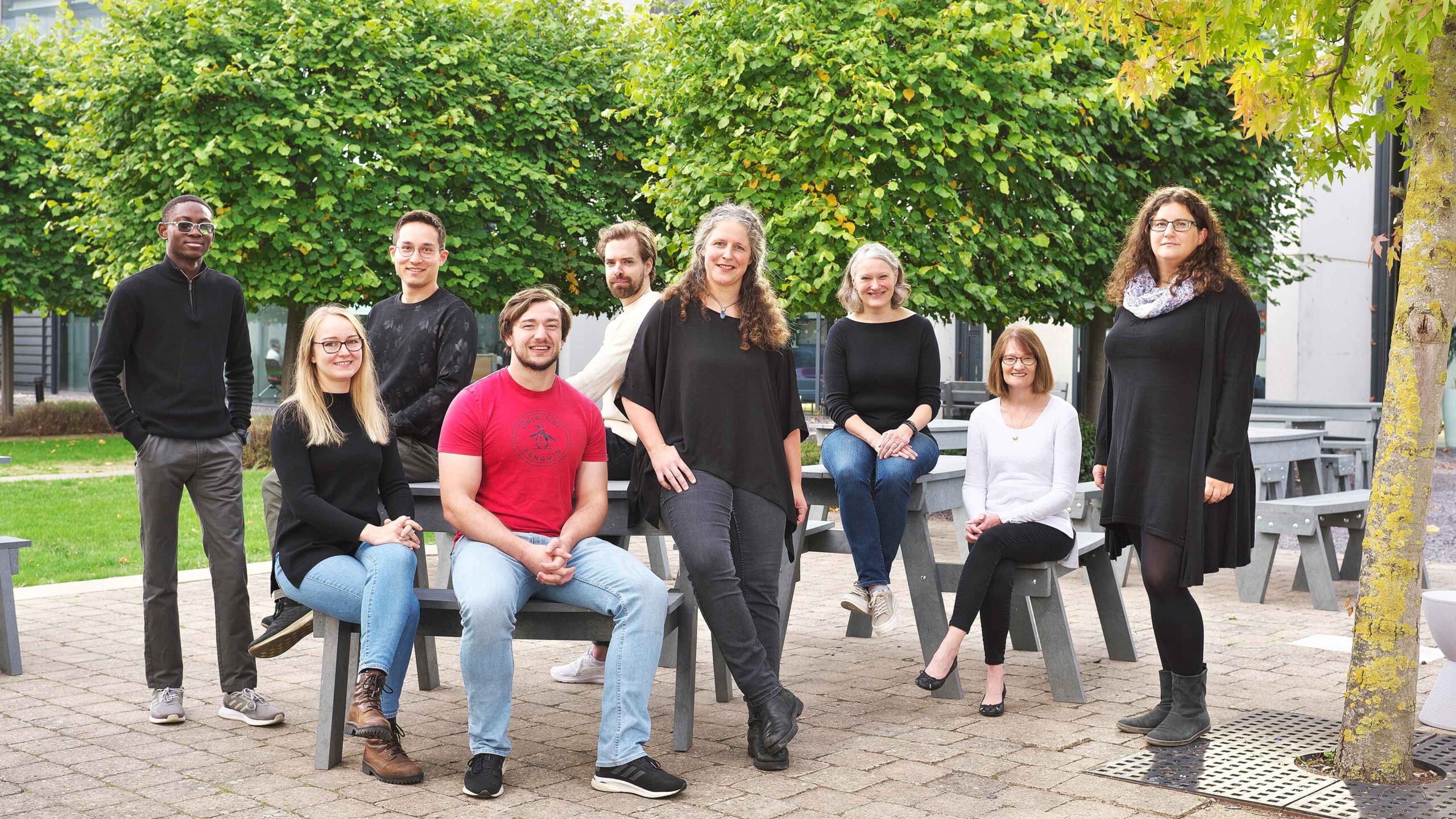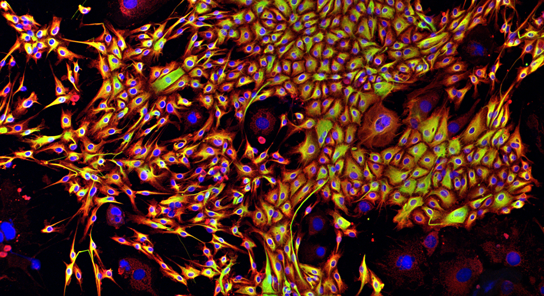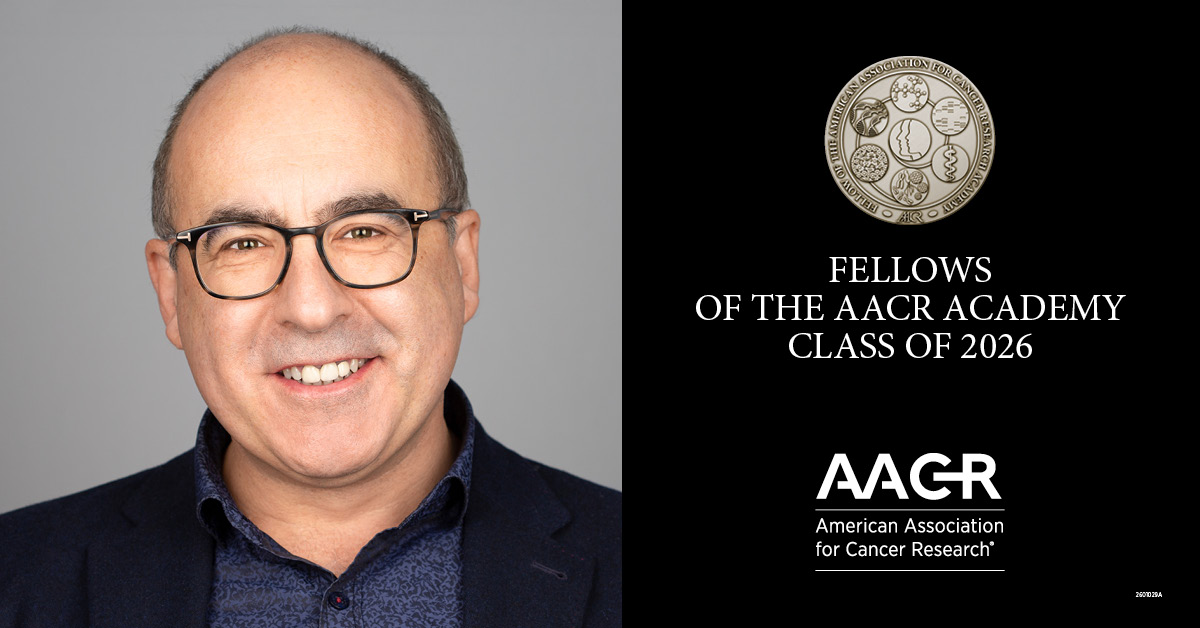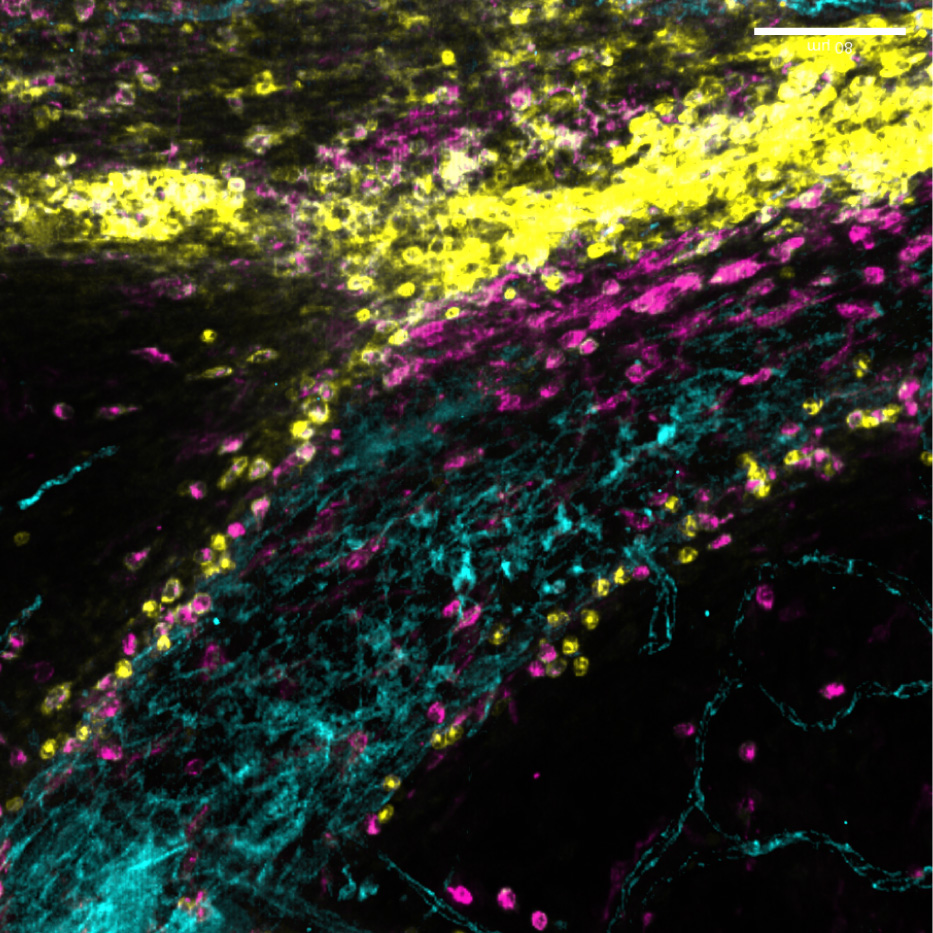Ancient signalling pathway could provide treatment hope for IBD

An ancient signalling pathway, known as the Hedgehog pathway, plays a vital role in inflammatory bowel disease (IBD) and may be a druggable target for treatment, according to new research from the de la Roche group.
The annual global burden of IBD, which includes ulcerative colitis and Crohn’s disease, is estimated at over one million years lived with disability – more than doubling in the past 30 years. IBD is a known risk factor for bowel cancer with around 18% of ulcerative colitis patients going on to develop bowel cancer after living with the disease for 30 years. Not only is IBD itself a risk factor for cancer, but treatments currently used to help ease symptoms of IBD by suppressing the immune system can also increase the risk of developing cancer.
While there is currently no cure for IBD, there have been many efforts to understand the cellular and molecular features of the disease in order to develop new drug therapies.
One of the main disease drivers in IBD is CD4+ Th17 cells. In healthy individuals, Th17 cells coordinate the defence against extracellular bacterial and fungal infections. However, Th17 cells can also react against healthy tissue and drive a number of autoimmune diseases such as IBD, where they trigger widespread inflammation, which can ultimately lead to cancer.
Research from the de la Roche group, published today in Nature Communications, has shown that the ancient Hedgehog signalling pathway is a specific regulator essential for CD4+ T cells to specialise into Th17 cells. Hedgehog signalling finetunes Th17 cell metabolism and initiates a gene programme both needed for Th17 development and Th17-mediated gut inflammation.
Importantly, the study shows that a drug blocking the Hedgehog signalling pathway, vismodegib, was effective at protecting against intestinal inflammation in a model of IBD without affecting the function of other protective immune cell types. Vismodegib is a known drug already approved in the UK and US for use as a cancer treatment, opening up the possibility of repurposing the cancer drug to help IBD patients in the clinic.
Dr Maike de la Roche, Group Leader at the Cancer Research UK Cambridge Institute said “We were excited when we uncovered and characterised a novel, cell-autonomous mode of Hedgehog signalling specifically responsible for the development of Th17 cells. Even more so, when we could diminish disease in models of human IBD by blocking the Hedgehog pathway. Since Th17 cells are not only pathological drivers of IBD but many other autoimmune diseases we are currently looking at whether Hedgehog inhibitors could be beneficial for the treatment of a wide range of autoimmune patients.”
This research was made possible through support from the Bioinformatics, Histopathology, Flow cytometry, Genomics and Biological Resource Unit Core Facilities at the Cancer Research UK Cambridge Institute.
Related News
See all news-

1M to advance AI powered personalised ovarian cancer care
19th February 2026
Researchers from our Brenton Group are part of an international team awarded the Global Ovarian Cancer Research Consortium’s inaugural AI Accelerator Grant.
Find out more -

Professor Sir Steve Jackson elected as a fellow of the American Association for Cancer Research
16th February 2026
Senior Group Leader Sir Steve Jackson has been elected as a Fellow of the American Association for Cancer Research Academy in the Class of 2026.
Find out more -

New immune pathway offers treatment hope for childhood brain tumours
3rd February 2026
A newly discovered immune pathway could lead to gentler treatments for multiple childhood brain cancers, according to new research from our Gilbertson Group published today in Nature Genetics.
Find out more